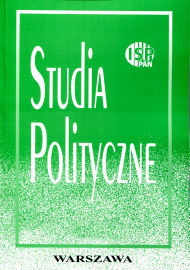Żart jako forma oporu w czasach totalitaryzmu. Rzecz o wierszu polskich studentów ze Lwowa do Stalina w 1952 roku
The joke as a form of resistance in times of totalitarianism. The tale of the Polish students’ of Lvov and their poem of 1952 dedicated to Stalin
Author(s): Andrzej Budzyński, Krzysztof Jasiewicz, Waldemar ListowskiSubject(s): History
Published by: Instytut Studiów Politycznych PAN
Summary/Abstract: George Orwell wrote: ‘A thing is funny when ... it upsets the established order. Every joke is a tiny revolution’. The Soviet system, the introduction of which into Poland began in the autumn of 1939, was so deeply contrary to human nature, to the refl exes of an undeformed conscience, and to the need for freedom and self-fulfi lment, while the Soviets occupying the country piled on such lies, arrogance and disdain for the people and the values they subscribed to that it was not necessary to be a Polish patriot in order to acknowledge, within no more than a few months, that the situation was unbearable and the system hostile and abominable. The circumstances gave rise to various forms of resistance, ranging from the passive, which consisted in refraining from activity by not carrying out orders issued by the authorities, for instance, or boycotting any and all of their undertakings, no matter what their nature and so forth, rather than engaging in positive actions, up to more active forms, such as active conspiracy and guerrilla operations. The circulation of jokes or their ruder versions, which may be defi ned as a small, humorous literary forms, depreciating the opponent in the manner most painful to him and harmful to his honour, knowledge, competence and leadership capability, progressed to an active form. Words were used actively in a wider span of actions, such as positive rumours intended to raise hearts, self-education, prayers, singing religious and patriotic songs, or engaging in ‘whispered propaganda’ or, less frequently, rude jokes. Pre-war Lvov was the most important metropolis in the Eastern Borderland of the Second Polish Republic. It had four higher educational institutions; the King Jan Kazimierz University, the Lvov Technical University, the Academy of Veterinary Medicine and the Foreign Trade Academy. The drama of the city began with its seizure by the Soviets in September 1939. Ethnic and social confl icts surfaced with an unprecedented force and the universities and academies became the grounds for hostile confrontations where numerous anti-Polish incidents occurred, including such drastic situations as fatal fi ghts or lynches. In 1952, some Polish students from Lvov wrote a servile letter praising the Soviet Union and its leader, Stalin. It was met with approval on the part of the authorities. Students being students, however, they had written it in such a way that, when the verses were rearranged, it became an anti-Soviet pamphlet and expressed its authors’ deep patriotism commitment to their own, national values. It was also an obvious example of resistance, for which, at that time, those responsible could pay with their lives. In 1952, during the closing period of the Stalinist era, it took a great deal of courage to jeer at the genial leader and his state. The case described in the article proves, however, that courage was not something that the Polish students from Lvov lacked.
Journal: Studia Polityczne
- Issue Year: 2014
- Issue No: 34
- Page Range: 139-148
- Page Count: 10
- Language: Polish

